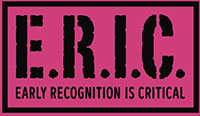Skip to content
Health tips
You are here:
- Home
- Health tips
- Perform breast self-exams regularly to check for any lumps or changes in your breasts.
- Get a mammogram every 1-2 years starting at age 40, or earlier if you have a family history of breast cancer.
- Talk to your doctor about your risk factors for breast cancer and any genetic testing that may be appropriate.
- Maintain a healthy weight through a combination of a healthy diet and regular exercise.
- Limit alcohol consumption to no more than one drink per day.
- Quit smoking or never start smoking.
- Consider breastfeeding, which may help reduce the risk of breast cancer.
- Wear a well-fitting bra to support your breasts and prevent sagging.
- Use caution when using hormonal birth control methods or hormone replacement therapy.
- Get enough vitamin D through diet and/or supplements.
- Consider taking an aspirin or other nonsteroidal anti-inflammatory drug (NSAID) if recommended by your doctor.
- Manage stress through relaxation techniques such as meditation or yoga.
- Avoid exposure to environmental toxins such as pesticides and chemicals.
- Get enough sleep and practice good sleep hygiene.
- Use sunscreen and protective clothing to prevent sun damage to your skin.
- Eat a balanced diet that includes plenty of fruits, vegetables, whole grains, lean protein, and healthy fats.
- Limit intake of red meat and processed meats, which may increase the risk of breast cancer.
- Choose plant-based sources of protein such as beans, lentils, and tofu.
- Avoid or limit processed foods that are high in sugar, salt, and unhealthy fats.
- Incorporate anti-inflammatory foods into your diet such as fatty fish, nuts, and seeds.
- Avoid or limit exposure to radiation.
- Exercise regularly, aiming for at least 150 minutes of moderate-intensity activity per week.
- Limit exposure to endocrine-disrupting chemicals, such as those found in plastics and personal care products.
- Take breaks from sitting for long periods of time.
- Consider genetic counseling and testing if you have a family history of breast cancer.
- Discuss any changes in your breasts with your doctor, including breast pain or discharge.
- Practice safe sex and get regular screenings for sexually transmitted infections.
- Manage any chronic health conditions such as diabetes or high blood pressure.
- Stay up-to-date on your cancer screenings and follow any recommended treatment plans.
- Work with your healthcare team to develop a personalized plan for breast cancer prevention and early detection.
Go to Top

